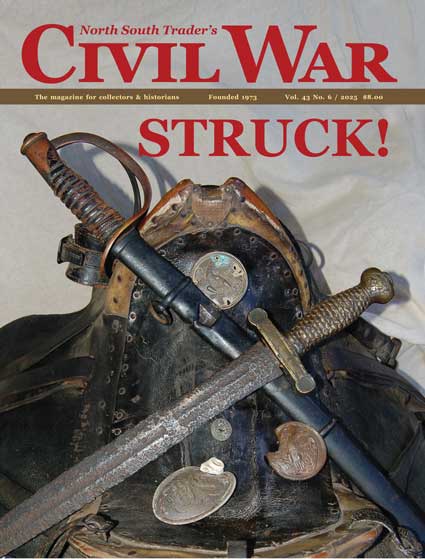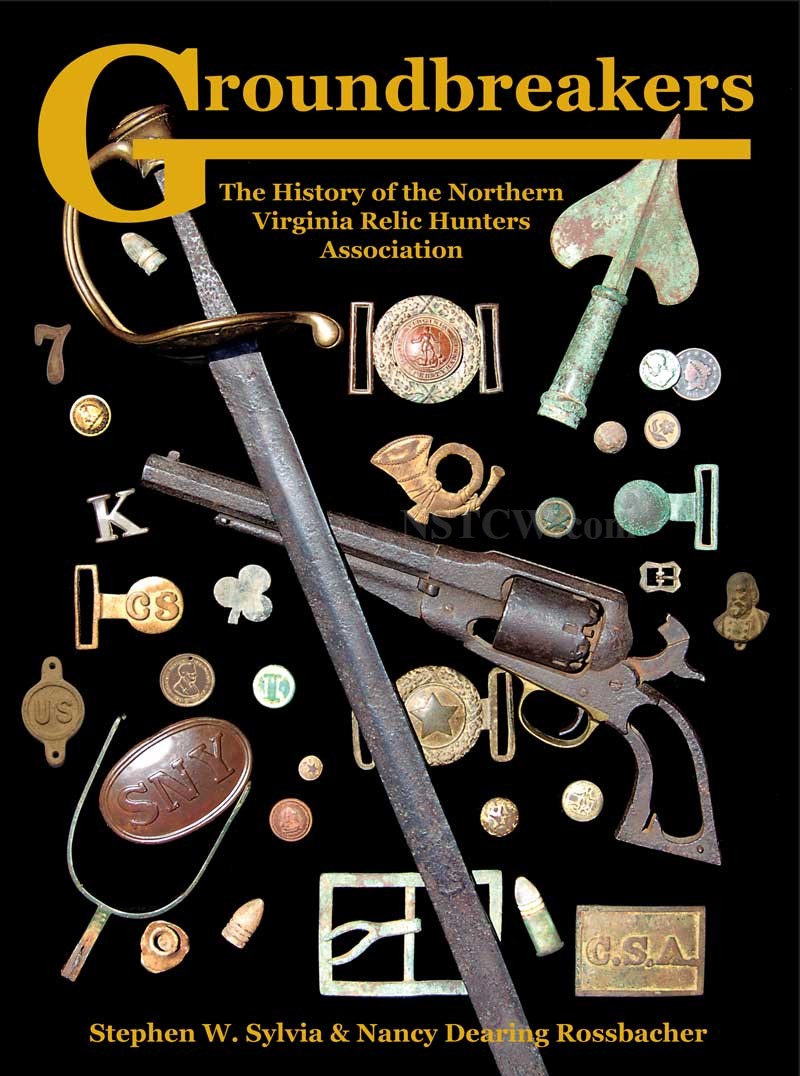|
Publisher's Forum Issue: 38-2 |
|
The pecking order of loyalties
As a child growing up in Maryland, a state with Southern convictions and Northern influences, I was exposed to the Civil War's legacy on a regular basis. Battlefields, museums, historical markers, and various other war-related tourist attractions provided constant reminders of Maryland's role in the conflict. Marylanders were still divided in their support of one side versus the other. Back in those days, interstate travel revealed more differences than mere --- people's accents proclaimed your arrival in another place. The other factor that I was keenly aware of was landmarks of the war, or their absence. Driving south from Maryland was like going back in time for me. The Civil War kicked into high gear. The Southern accents and barbecue signs were side attractions to the battlefields, cannon, statues, and roadside markers that abounded. Traveling to New England was equally alien and fascinating, but there was no vestige of the Civil War. I found travel in either direction enthralling. It wasn't just the accents that fascinated me. It was also the strange expressions and unfamiliar foods and beverages too. Radio ads hawked stuff I'd never heard of and signs advertised exotic places to visit and sights to see. Nationally known products such as Coca-Cola and Lucky Strike cigarettes were on billboards too, but they were invisible next to Silmo coffee syrup, Levi's jeans, Stuckey's, or Pedro's South of the Border. Smells were different too. New Jersey smelled way different from South Carolina. Cape Cod smelled nothing like Florida even with the same ocean in front of them. Meeting other tourist kids in motels where we stayed presented a kaleidoscope of America's populace. I learned that a boy from Texas was likely to boast that the Lone Star was the best state in the nation, and a kid from the Bronx might say the same about the Big Apple. (Man, did they talk funny too.) Of course, I made the same announcement about Maryland being the best, and that sometimes caused a ruckus. Opinions about the war were much more polarized and more obvious, too. In the South, the words "Dixie" or "Rebel" were everywhere in the names of motels, restaurants, and gas stations. Confederate flags and Rebel characters like Gen. Jubilation T. Cornpone were incorporated into ads and signs. In sharp contrast, In the North it was as though that war never happened. There were no Yankee Gas stations or Bluebelly Motels. What I learned from those trips was that every state was different in terms of weather, vegetation, styles of clothes, accents, foods, smells, and even music preferences. Yet everyone spoke the same language and the American flag was everywhere, as were churches. We were different and yet the same. It was a wonderful learning experience that made me yearn for the next summer through each long winter.
These childhood realizations about regional individuality later helped me understand how difficult it was for our founders to create an alliance between 13 individual small "nations," each with different economies, geography, resources, and to an extent, different cultural heritages. It was also easy to grasp the furor that erupted less than a century after that founding as issues both economic and social began to widen the gaps between states and regions. America was colonized by small groups of people from England, France, Spain, and the Netherlands with very common characteristics of race, religion, morals, ethics, education, and stations in life. They were nearly all from the working class --- farmers, tradesmen, soldiers, and speculators. There were few aristocrats. They shared a common grasp of man's responsibility to family and community and man's role in the scheme of things. This commonality was the grounding basis for America. It probably accounts for the fact that the colonies never went to war with one another. Instead they labored at communication and compromise and never forgot that their neighbors had the right to govern themselves by their own needs and wants. This was the basis for states' rights, a concept little understood by most Americans today. The colonists followed a basic understanding about priorities. With some variations, an individual was faithful to God first, family second, community third, colony next, and nation last. This order of loyalty began with ancient man's simple recognition of allegiance to family and clan out of self defense. Thousands of years later the structure of loyalties persisted. In 1861, most men still adhered to that pecking order of fidelity: God, family, community, state, region, and nation. When Robert E. Lee made the decision to resign his commission in the US Army and offer his services to Virginia, it was a decision borne of anguish. He simply could not take up arms against his beloved Virginia. His decision was based on the simple fact his allegiances to his family and his state were greater than that to his nation. I read a newspaper article recently by a reporter who wrote that Robert E. Lee was a traitor who should be erased from our history books. This was not the first time I'd read such sentiments about Lee in recent years. I was appalled that a major newspaper would print such tripe in a news article. I wondered how a young man could have such inaccurate knowledge of an American icon that he would arrive at such a vitriolic opinion. And by inference, his editor and the paper itself were in agreement. It occurs to me that in our zeal to understand other nations and other peoples, we have lost sight of our own past. As a result, all too often people blindly accept the nonsense of agenda-driven revisionists who have erroneously retrofitted America's complex historical figures and events into convenient pigeonholes. If the reporter had actually done his job responsibly, he would have discovered that Lee was a man defined by honor. His English ancestors fought beside William the Conqueror, another marched in the Third Crusade in the Holy Land, and one was knighted by Queen Elizabeth. In the context of both his lineage and his times, Robert E. Lee's choice to side with family, community, and state against the United States is understandable. His own father defied his ancestral England when he made the choice to join the Continental Army. Defense of hearth and home and resistance to injustice came naturally to men like the Lees. From Lee's perspective, the US was about to wage war on his home, his people, and his family. Even though the basic principles of the Republic had been compromised, Lee agonized over the decision and made his choice reluctantly. Once committed, he fought like a lion. Once defeated, he was without rancor. Such a man is not a traitor but a role model for all. --- Pub.
|
| Past Publisher's Forums click an issue number to view |
| 43-6 |
| 43-5 |
| 43-4 |
| 43-3 |
| 43-2 |
| 42-3 |
| 42-3 |
| 42-3 |
| 42-3 |
| 42-3 |
| 41-6 |
| 41-5 |
| 41-1 |
| 40-5 |
| 40-4 |
| 40-3 |
| 40-1 |
| 39-6 |
| 39-5 |
| 39-4 |
| 39-3 |
| 39-2 |
| 39-1 |
| 38-3 |
| 38-1 |
| 37-6 |
| 37-5 |
| 37-4 |
| 37-3 |
| 37-2 |
| 37-1 |
| 36-9 |
| 36-6 |
| 36-5 |
| 36-4 |
| 36-3 |
| 36-2 |
| 36-1 |
| 35-6 |
| 35-5 |
| 35-4 |
| 35-3 |
| 35-2 |
| 35-1 |

